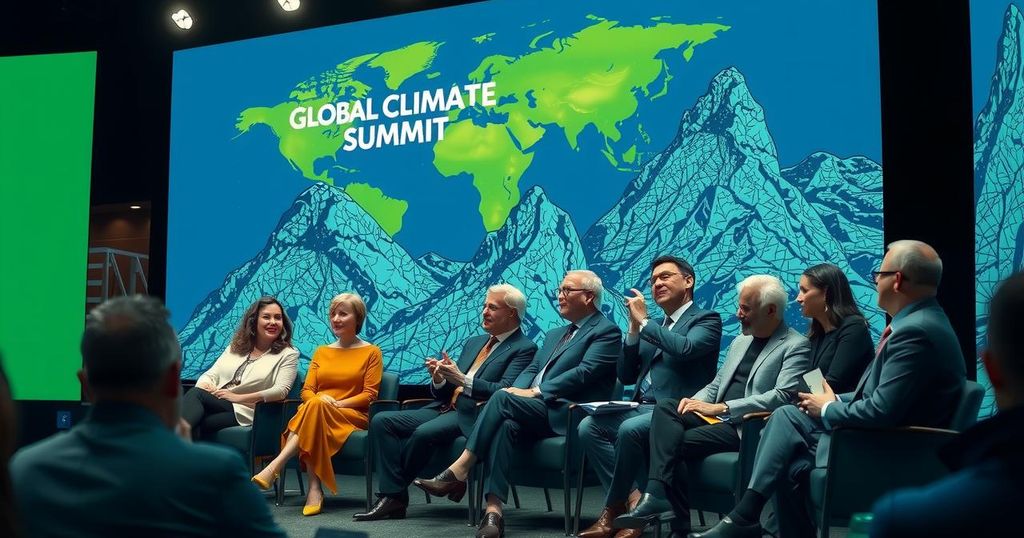COP29: Developed Nations Commit $300 Billion for Climate Action Amid Criticism

At COP29, developed nations pledged $300 billion annually for climate change efforts, intending to raise it to $1.3 trillion by 2035. However, this funding has been criticized by developing nations as insufficient, emphasizing the need for stronger commitments amid the escalating climate crisis. As COP30 approaches, pressure mounts on wealthier countries to enhance their contributions.
During the U.N. Climate Change Conference (COP29) held in Baku, developed nations made a significant pledge of $300 billion annually to enhance efforts against climate change, with intentions to raise this sum to $1.3 trillion by the year 2035. However, this commitment has been met with considerable criticism from developing nations who argue that this funding falls woefully short of addressing the severe challenges posed by climate change.
U.N. Secretary-General Antonio Guterres acknowledged the commitment at COP29 but emphasized that it did not meet the necessary ambitions required to combat climate change effectively. He stated that “the $300 billion annual funding falls short of addressing the immense challenge we face.” Similarly, UNFCCC Executive Secretary Simon Stiell expressed his apprehensions regarding the adequacy of the pledged funds, urging nations to escalate their climate actions ahead of the next conference, COP30, remarking: “There’s still much work to do. We must double our efforts before next year.”
Delegates from developing countries voiced strong opposition to the agreement, claiming that it failed to meet their needs for substantial climate financing. Chandni Raina, representing India, labeled the deal as “an optical illusion” and contended that it “fails to address the magnitude of the challenges confronting us.” Tina Stege, from the Marshall Islands, added that the funding was insufficient, leaving vulnerable nations “with just a fraction of the resources they urgently need.” Representatives from African nations, including Sierra Leone, also criticized the pledge, saying it indicated “a lack of goodwill” on the part of wealthier nations to assist those most affected by climate change.
The promise of $300 billion stands in stark contrast to the real-time impacts of climate change, underscored by the alarming data from the Copernicus climate observation platform confirming that 2024 is poised to be the hottest year on record, with global temperatures rising significantly above averages from previous decades.
As the world looks towards COP30, there will be increasing pressure on developed nations to fulfil their financial commitments and to reassess their strategies for equitable climate financing. Vulnerable nations persist in their call for more significant contributions from major emitting countries such as the United States, Canada, China, and Gulf states, seeking a more proactive approach to climate support for those disproportionately affected by climate impacts.
The dynamics of climate financing have always been contentious, especially between developed and developing nations. Wealthier countries often pledge funds to support climate initiatives but frequently encounter backlash from developing nations, which argue that the proposed amounts are insufficient. These discussions are framed within a broader context of increasing global temperatures and extreme climate events, which disproportionately affect poorer nations, highlighting their vulnerability and reliance on external support to combat climate-induced challenges. COP29 was a significant venue for expressing these concerns and demands, setting the stage for future negotiations and commitments.
The COP29 conference revealed the significant gap between the pledges of developed nations and the expectations of developing countries regarding climate financing. The $300 billion commitment, although substantial, has been widely criticized as inadequate in light of the severe climate challenges faced by vulnerable nations. As the world gears up for COP30, it is crucial for developed nations to not only fulfill their financial commitments but also to engage in more equitable partnerships that genuinely support developing countries in their fight against climate change.
Original Source: www.turkiyetoday.com






